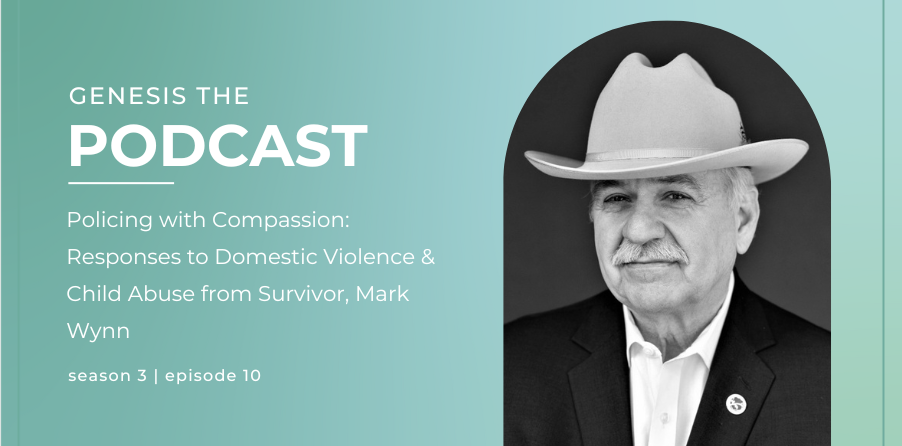Genesis The Podcast: Policing with Compassion

Policing with Compassion: Responses to Domestic Violence and Child Abuse from Survivor, Mark Wynn
Season 3, Episode 10
When we consider the harrowing impact of domestic violence, it is often the immediate physical harm that comes to mind. However, the shadows cast by such trauma extend far beyond the bruises and scars, affecting the psyche and shaping futures. This is a tale not just of survival but of transformation, as told by Mark Wynn, a former lieutenant and survivor of domestic violence.
The darkness of his childhood, impacted by the tyranny of abuse, unveils a profound truth about the resilience of the human spirit. Wynn’s narrative is not just his own; it is echoed in the lives of countless others who have walked similar paths. Through his experience, we gain an unfiltered glimpse into the lasting effects of childhood trauma and the systemic challenges that survivors face, particularly within the context of domestic violence.
Wynn’s transition from victim to advocate highlights the pivotal role of law enforcement training in handling domestic violence – this is crucial, as it is often the police who are the first responders to such crises. They are tasked with navigating the tangled web of child abuse and coordinating with Child Protective Services (CPS) to ensure the safety and well-being of young victims. Their reports and actions can significantly influence court decisions, tipping the scales in custody and protective order cases.
As our conversation with Wynn unfolds, we discuss the introduction of risk assessment tools aimed at safeguarding the most vulnerable during times of trouble. These tools are essential in recognizing the potential for escalated abuse, particularly during custody exchanges, or in situations involving stepparents. This discussion illuminates the complex and often fraught landscape of family courts, underscoring the need for detailed documentation and informed decision-making.
Addressing the systemic barriers that victims encounter, such as economic hurdles in civil courts and a shortage of expert witnesses, Wynn emphasizes how the personal experiences of law enforcement officers with domestic violence can profoundly shape their response to incidents. Community support, he argues, is integral to providing transitional housing and resources, especially for Spanish-speaking victims. This collective effort must begin with trust and support for those impacted.
As we advocate for change, we also celebrate the success stories, the resilience, and the strength that emerge from such dire circumstances. The podcast episode not only seeks to understand the intricacies of domestic violence but also aims to strengthen the fabric of support for survivors. It is an invitation to join a profound exploration, a call to action, and a message of hope for a future where healing is possible for every survivor of domestic violence.
We wrap up the episode by shining a light on the critical support services for Spanish-speaking individuals affected by domestic violence as provided by organizations like Genesis. These services exemplify the importance of accessible resources and the difference that compassionate, informed intervention can make in the lives of those seeking to escape the cycle of abuse.
We hope you will join us on this journey, and together, let’s continue to confront and dismantle the systemic obstacles that stand in the way of safety, healing, and empowerment for survivors of domestic violence.
To listen to this episode of Genesis the Podcast, click here.
